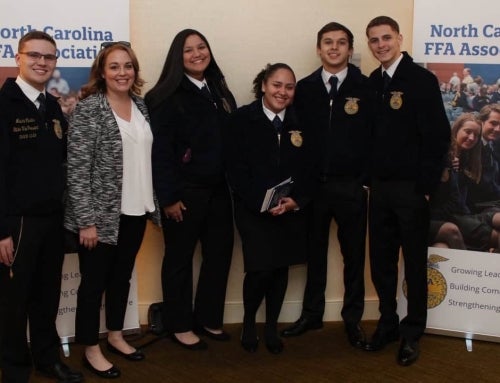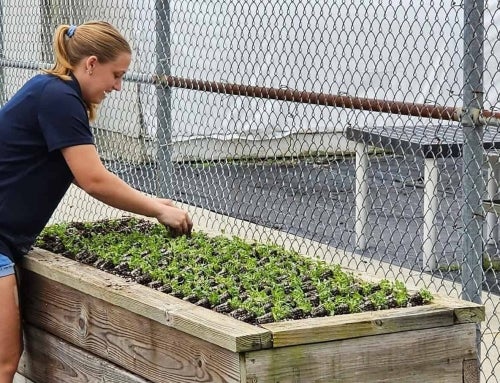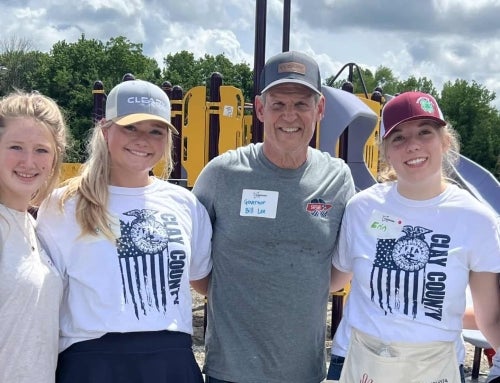The presidents of the American Farm Bureau Federation and the National Farmers Union spoke with FFA members about the opioid epidemic in rural communities on Thursday at the 91st National FFA Convention & Expo. Mark Poeschl, CEO of the National FFA Organization, moderated the discussion.
Together, Farm Bureau and the National Farmers Union created Farm Town Strong, an online resource for people affected by opioid addiction in rural communities.
Zippy Duvall, American Farm Bureau Federation president, said that at first, he thought the opioid epidemic was only an issue in urban areas of the U.S.
“When we first started talking about this, I didn’t really think that it was a major issue in rural America,” Duvall said.
Statistics from Farm Town Strong say that 74 percent of farmers and farm workers “say that they have been directly impacted by the opioid epidemic.” This data comes from a October 2017 Morning Consult survey.
Only one-third of farmers say they have easy access to treatment.
“I think the challenge that we all have is, how do we work to fill that gap,” said Roger Johnson, National Farmers Union president.
Johnson said the biggest issue with the opioid epidemic is the shame and stigma, which can prevent people who are addicted from speaking out.
“It’s a problem that a lot of people feel shame about,” Johnson said. “They want to hide it. They don’t want to acknowledge it. It’s nothing to be ashamed of any more than a broken leg would be. It needs treatment, and we need to figure out how to get more treatment opportunities out there.”
Guided by Poeschl, Johnson and Duvall spoke on the importance of raising awareness for the issue and what getting help for someone suffering from opioid addiction looks like. Johnson said to call a crisis number or 911 if there is a critical situation. If one is just aware of the situation, he said there is a role FFA members can play in starting a conversation and helping that person get over the shame.
The discussion prompted personal stories about opioid aduse. Duvall shared a story of a friend who had surgery and was prescribed opioids for the pain. An addiction started, but friends intervened and Duvall said that friend is now clean after receiving help.
Poeschl asked audience members to raise their hands if they had been personally impacted by opioid abuse. Out of about 30 audience members present, roughly eight people raised their hands.
An Arizona FFA member shared her own story. Her father suffered from substance abuse, and her mother started helping him by reminding him that he had people that cared for him and would listen to his story.
Throughout the discussion, the panelists reiterated that addiction is a disease and raising awareness is the biggest action to take.
Another way to make an impact is to take back unwanted medications back to a pharmacist for appropriate disposal.
Saydee Longhurst, Idaho FFA president from Shelley, Idaho, said she came to the panel because “it’s important for us to recognize issues that are going on within our communities.”
“I think being aware, speaking out and especially as youth leaders in agriculture we have such a big voice that we need to use more. [We need] to speak to adults and not be afraid to share our opinions and things that we learn here at the national convention,” Longhurst said.
Visit farmtownstrong.org to learn more about the opioid epidemic and how to help those in need.
Dene Dryden is a junior at Kansas State University studying creative writing. An alumna of the Palco FFA Chapter in Kansas, she is serving as a reporter for the 91st National FFA Convention & Expo Newsroom Crew.












